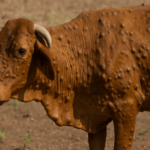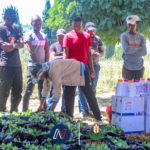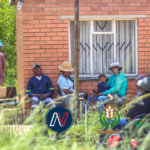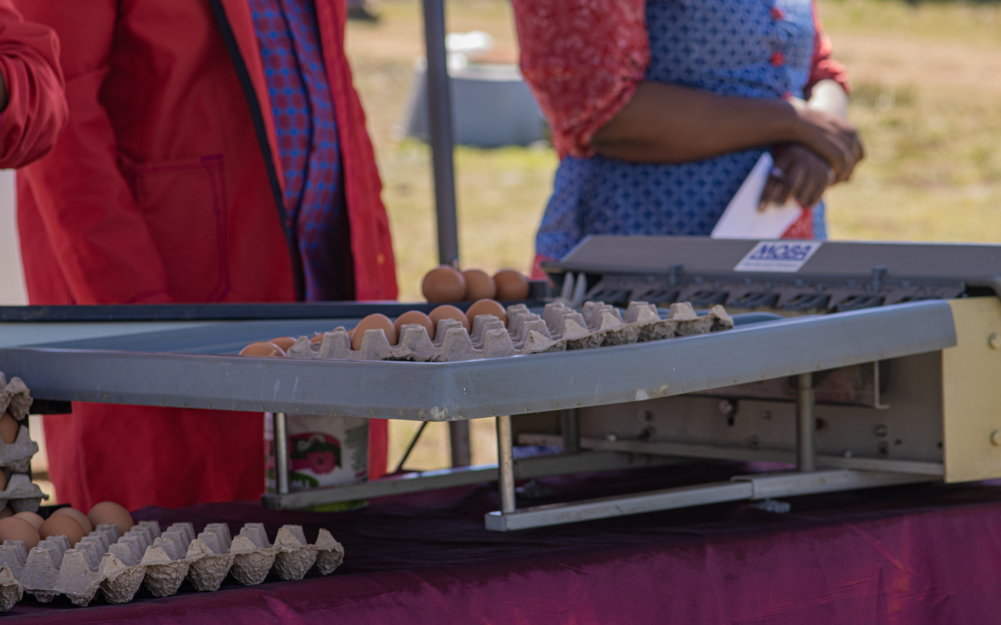It was a day of cheers and celebration of a long tiresome journey that started a doubted dream.
When Teleko Senauoane started Senawi Horticultural Farm in 2016, he had nothing but a small shack, 100 chickens and a dream that many dismissed as unrealistic.
A teacher by profession, Teleko had always wanted to feed his community and build a business that would one day sustain itself, but the road to success was anything but easy.
“I had a very small layer house, a shortage of water and poor egg production,” he recalled during a field day at his farm in Mohlapaneng, Thaba-Tseka, held to celebrate his latest milestone.
“The chickens laid eggs on the floor, and sometimes they broke them. I was getting only about three trays of eggs a day, it wasn’t profitable at all.”
Back then, Teleko was trying to run a farm with limited resources and no real structure.
He grew vegetables on the side, kept pigs and ran a poultry project, learning through trial and error.
For years, he says, he lost more than he gained.
But his turning point came in 2019, when he heard about the Smallholder Agricultural Development Project II (SADP II) — a government programme supporting small farmers to become more productive and market-oriented.
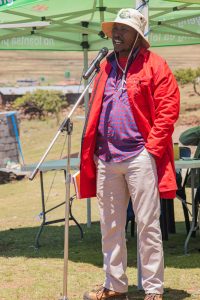
“I applied for the grant and was lucky to be selected in 2020. Even then, it wasn’t easy. I had to raise 25 percent of the project contribution before I could get the support. It took sacrifice, but it was worth it,” he said.
Through SADP II, Senawi Farm received the tools and infrastructure that completely changed its operations, a proper chicken house, improved equipment and most importantly, a reliable water system.
“Before SADP II, I struggled to get enough water for my chickens, now we have a steady supply, and that alone has improved egg quality and the health of the chickens.”
The farm’s transformation was visible to everyone who attended the celebration. Where there was once a small, crowded structure now stands a well-ventilated poultry house.
The number of chickens has multiplied and egg production has more than tripled.
With steady income and a growing business, Teleko has been able to employ four permanent workers and hire others on busy days.
“I am proud to be creating jobs and producing food at the same time. This farm has become my life’s work. “
The event, which marked Senawi Farm’s graduation from the SADP II support programme, was attended by farmers, local leaders and agricultural officers.
Maisaka Litsefane, the project facilitation officer for SADP II in Thaba-Tseka, commended Teleko for his determination.
“We congratulate Senawi Farm for reaching milestone four. This success shows what can happen when farmers and government work together. SADP II is here for every Mosotho, we must join hands to fight hunger.”
Instead of hosting the usual speeches, the field day turned into a learning experience. Teleko and his team demonstrated how their new equipment grades eggs into medium, large and jumbo sizes, and how proper feeding and housing influence production.
“We chose to display eggs rather than live chickens,” Teleko explained saying chickens are sensitive to noise, and too much disturbance can cause stress that affects production.
“…Eggs, on the other hand, tell the story of our success.”
Farmers from across the district asked questions about breeding, feed and animal health. One participant asked how the farm prevents health complications among hens that lay extra-large eggs.
“Proper feeding is everything,” Teleko answered confidently.
“When you take care of your chickens, they take care of you.”
District Agricultural Officer Makhala Phalatsa praised Teleko’s perseverance, noting that his journey had inspired other farmers to see beyond traditional farming methods.
“When Senawi Farm started, many doubted that a horticultural farm could also succeed in poultry, but today, we have proof that with support and discipline, it’s possible. This farm is now a model of what smallholder transformation looks like,” she said.
As the day ended, Teleko used the moment to reflect on the lessons of his journey, from frustration to fulfilment, from scarcity to self-sufficiency.
“We in Thaba-Tseka know our district struggles with food shortages, however, that can change if we all take farming seriously. Agriculture is not just about survival at a home stead level.”
Today, Senawi Horticultural Farm stands as more than just a business. It is a symbol of hope and proof that with the right support, dedication and knowledge, small farmers in Lesotho can grow from hand-to-mouth survival to self-sustaining success.
“My story is simple,” Teleko smiled as he watched his workers pack trays of eggs. “Don’t give up when it’s hard. If you love the land, it will eventually love you back.”
Sponsored by


